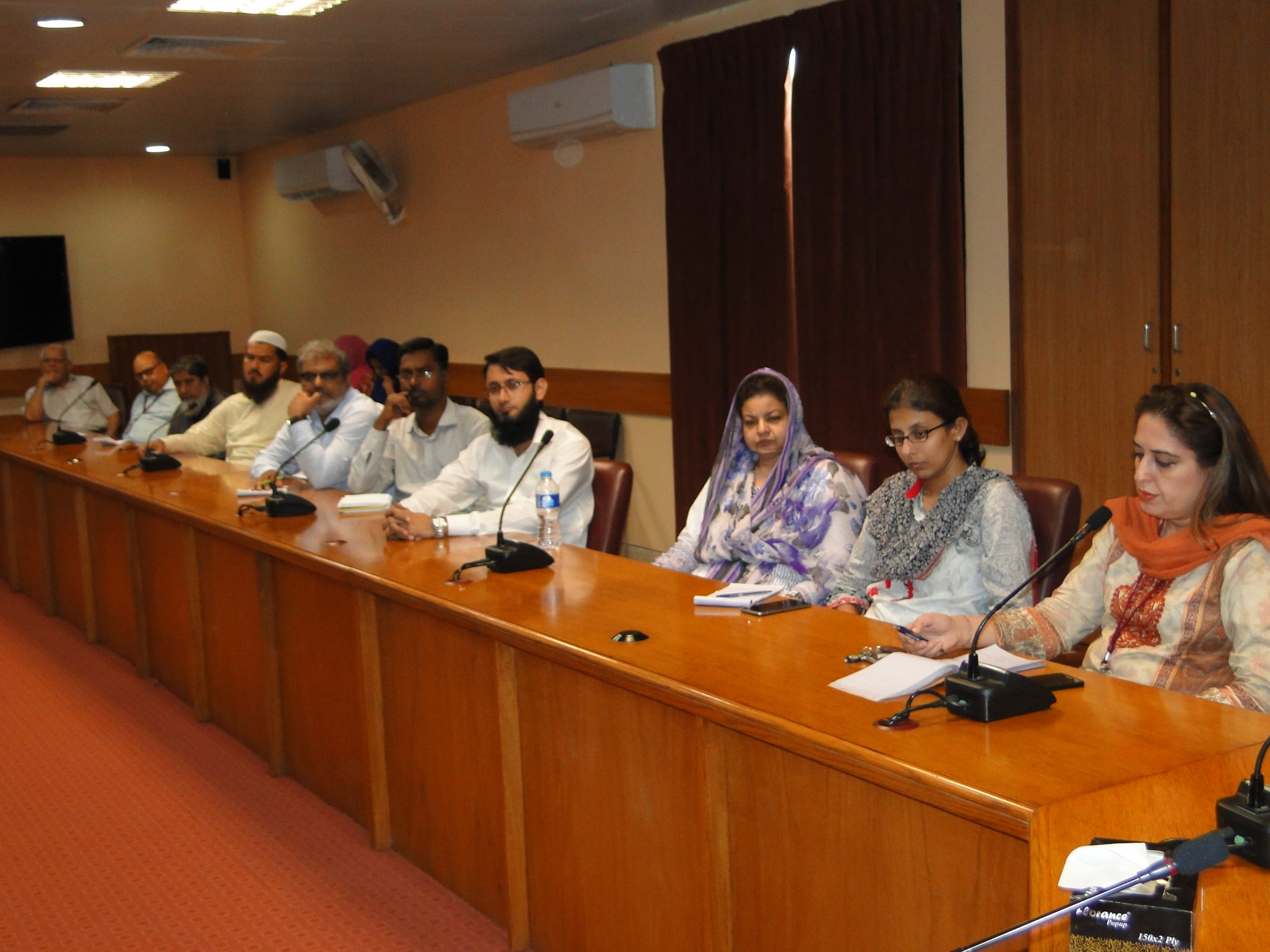Life-long learning through reading and writing

Besides kids’ contents, college students and imminent professionals are contributing easy-to-read yet comprehensive articles to few popular magazines of the young generation on a variety of appealing topics, especially in view of diminishing concentration span and time constraints for young and adults alike.
To inculcate among students of IoBM the passion to become life-long learners by making them readers and writers, an interactive discussion was held at the EMEC, IoBM on Wednesday, August 09, 2017. At this discussion, led by Dr. Syed Irfan Hyder, Dean CBM and CES, IoBM, were invited prominent guests including Mr. Salman Siddiqui, Director, Educational Resource Development Centre (ERDC); Mr. Rayed Afzal, Chairperson, Educational Assessment Systems and Trainings (EAST) and Mr. Khurram Shafique, Leading academician (Writer, Playwright, Scholar on “Iqbal”). The event was largely attended by IoBM faculty and HoDs.
Dr. Syed Irfan Hyder said that the broader objective of IoBM’s mission statement is to develop students as life-long learners. He viewed this as one of the core objectives for the IoBM administration, management and faculty to achieve this mission statement in letter and in spirit. He shared that while conducting interviews of new students, merely 5% of candidates revealed they read books. Dr. Syed Irfan Hyder stressed upon the faculty and HoDs to motivate their students to become readers and monitor what they are reading. He also asked a question to the guests and those attending that how can we develop readers and writers? He suggested that students should read biographies and faculty should create and manage their respective blogs.
Mr. Khurram Ali Shafique said that the culture of reading has faded away because we as a nation have moved away from our cultural history, ideas and opinions which once bonded us as one nation. He explained the time in yesteryear when a book shop and a library was located in every nook and corner of a city and how people eagerly rented out these books.
Mr. Salman Ahmed Siddiqui opined that the current education system of the world is not designed to produce readers or writers. He said that the primary objectives of students are to pass their examinations and to develop skills, which can never come at par with reading. Mr. Salman Ahmed Siddiqui shared the concept of the functional Illiteracy era which means that there are people who claim to be scholars and have information on various subjects but they are not committed to reading or writing. He proposed that classes in educational institutes should be termed and seen as Clubs, where students interact with each other and with their teachers to initiate dialogues on various topics. This will develop confidence among students whereby motivating them to have faith in their opinions and views on a number of topics.
Mr. Rayed Afzal commented that good readers are made at an early age, which is the school going stage. He feared that if a child has not begun reading by the age of nine, he/she may never be able to become good readers. Mr. Rayed Afzal urged the faculty to infuse in the minds of the students to become good listeners so they could turn into readers. He shared an example of how grandparents would read stories to their grandchildren, a practice that has been long forgotten.
Commenting on the point “good readers are made at an early age”, Mr. Parvez Jamil informed such nationally popular publications as Dawn’s Young World , US Magazine of The News and Young Nation of The Nation are playing instrumental roles in inculcating reading and writing habits among young readers and writers. College students and imminent professionals are also contributing easy-to-read articles to such magazines on appealing topics for children and youth, especially in view of diminishing concentration span and time constraints for young and adults alike.
Mr. Asif Khan, Assistant Professor, Communication Department, IoBM stressed upon the need to promote the culture of reading and writing beyond text books and that our library needs to further enhance its inventory on fictional and biographical books in this regard. Ms. Aliya Sikandar said that students should focus on pleasure reading without referring to a dictionary and hampering the flow of reading every time they come across difficult words. Ms. Shumaila Omer, Assistant Professor, Communication Department, IoBM added that she assigned books among her students who then presented a thorough book review of each.























